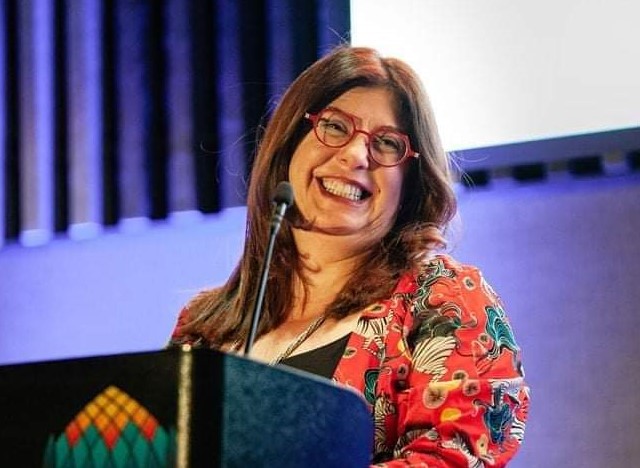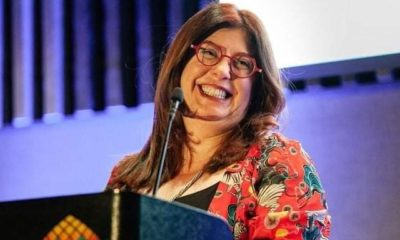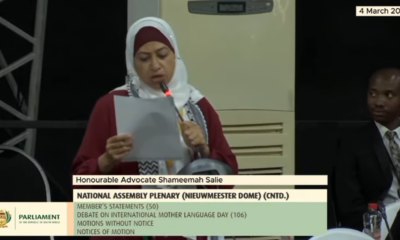
Voices

Pressure and protest
We had the honour of hosting Ellen Germain, the United States special envoy for Holocaust Issues, this week for an insightful breakfast discussion. The meeting, also attended by a human rights officer from the United States embassy, provided an opportunity to engage in open conversation about the persistent challenge of antisemitism and the complex dynamics of Holocaust remembrance, particularly in the aftermath of the tragic events of 7 October. It covered the complexities that we face in the continuous and blatant politicisation of the term “genocide”, as well as the manner in which the memory of the Holocaust is misused by those who seek to discredit the Jewish people and Israel.
Germain was in the country for the conference “Building Resilience Through Holocaust and Genocide Education”, which was held at the Cape Town Holocaust & Genocide Centre on the occasion of its 25th anniversary, as well as the 30th anniversary of the Rwandan genocide and the end of apartheid.
The conference was aimed at museum educators tasked with the critical and challenging role of teaching the history and lessons of the Holocaust and other genocides. Our national vice-president, Mary Kluk, who also serves as a director at the Durban Holocaust Centre, delivered a poignant address titled, “Teaching about the Holocaust and Genocide after October 7”. Kluk described her session as “hugely important in a time when the world demands that we critically examine the work we are doing.”
This conference comes at a particularly challenging time, given the pressure faced by Jewish communities worldwide and the alarming rise in antisemitic incidents globally. Recent statistics paint a troubling picture. In the United Kingdom, where there were 1 978 recorded antisemitic incidents between January and June 2024, the highest ever reported. France experienced a tripling of antisemitic acts, reaching 887 recorded events during the same period. In Canada, the Jewish community, in spite of comprising less than 1% of the population, accounted for 70% of all hate crimes reported in 2023. Meanwhile, an Anti-Defamation League/Hillel survey revealed that 73% of Jewish students in the US witnessed antisemitism on campuses following 7 October, with only 39% now feeling comfortable identifying as Jewish.
It’s a real pity that a small group of Jews for a Free Palestine chose the Cape Town Holocaust & Genocide Centre and a conference on teaching the Holocaust to launch an ill-conceived protest. The demonstrators, who donned watermelon-themed kippot, couldn’t have been more callous in their misreading of the situation, and choice of time and location for this protest. While inside the conference, delegates discussed the definitions and experiences of antisemitism both modern and historic, it’s clear that there’s no definition under which protesting outside a Holocaust museum wouldn’t be considered base antisemitism. No image could be clearer of the gulf between this group’s stated ideals and the reality of its conviction than its decision to engage in this protest. It’s clear that those protesting have no respect for Jewish traditions or heritage. There are many ways to protest against the Israel-Gaza war. The choice to protest at a Holocaust museum is designed to hurt the Jewish community, not assist Palestinians in their desperate plight or bring about an end to the war in any meaningful way.
- Listen to Charisse Zeifert on Jewish Board Talk, 101.9 ChaiFM, every Friday from 12:00 to 13:00.








